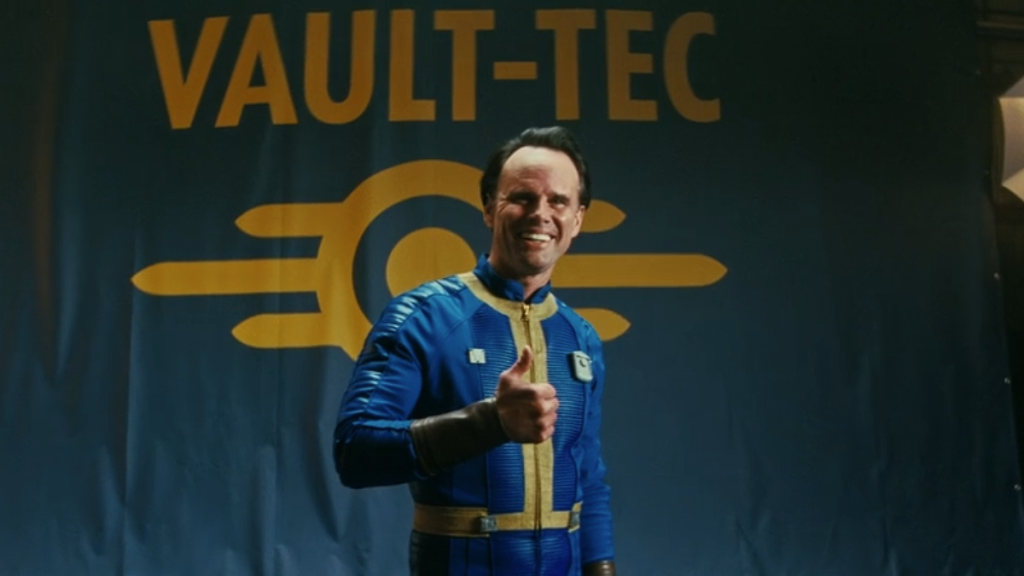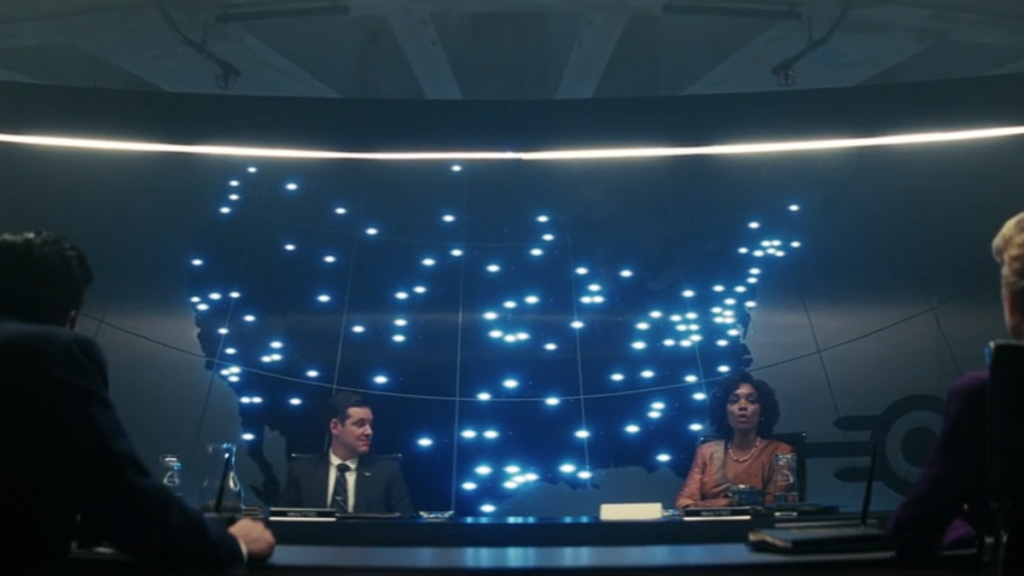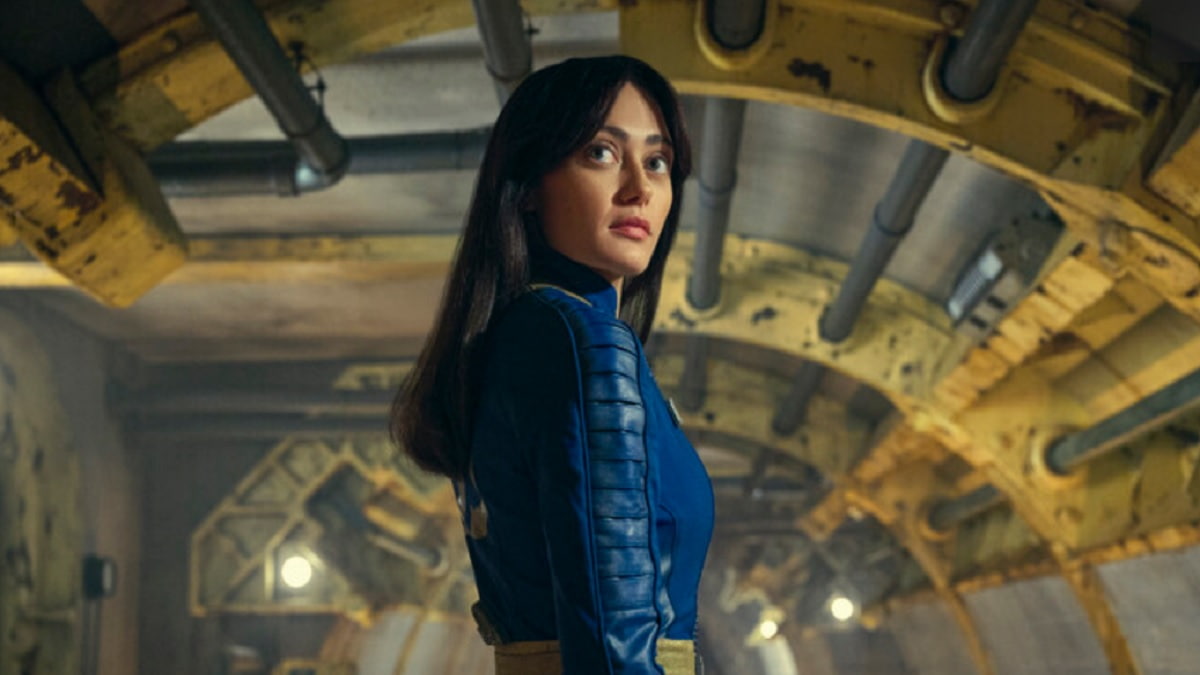Video game adaptations have a harder job than most TV shows. While they come with an audience built in, game-inspired series have to do more than simply appeal to fans of the original medium. They’ve got to attract longtime fans and lorehounds, all while simultaneously telling a story that can be understood by the uninitiated.
While the task is difficult, it isn’t impossible. The Fallout TV show has shown itself to be a perfect example in this regard, earning praise from critics, Fallout fans, and general viewers alike. But what is it about the show that accomplishes what so many adaptions can’t? The secret sauce lies within a few of its classic narrative techniques, cleverly working in faithful nods to its source while creating a world for the general audience.
Note — major spoilers ahead. Don’t read further unless you’ve finished all of Fallout season one.
Fallout stars a Fish Out of Water protagonist
Lucy is a fantastic character but also an archetype you may have seen before. She is a vault dweller, one who has been lied to her entire life and has never seen the outside world. As such, she’s positive, chipper, and very, incredibly, ridiculously naive. By using a protagonist who lacks real-world knowledge, the writers get to do two things.

First, for those who aren’t fans of the IP, this gives viewers a way to learn about the world without it feeling like it coddles or like it’s an info dump. In the first episode, viewers are introduced to the idea of vaults, get to see how they work as a ‘utopian’ society, and witness how naive the character is as the brutality of the outside world comes calling. All of this is done with sick action sequences, entertaining comedy, and interesting visuals that show the ridiculous aesthetic of the vaults. None of this feels belabored or spoon-fed, as the knowledge is doled out as part of a character-driven narrative, giving new viewers a great way to learn without even knowing it.
For fans of the Fallout games, the fish out of water protagonist provides a much different form of entertainment. Fallout focuses on dark comedy as a core component of its draw, and by giving fans a naive, happy-go-lucky protagonist, there’s some fun to have at Lucy’s expense. By knowing what’s to come, Lucy’s peppy persona is only that much funnier. She’s about to fall victim to the apocalyptic RPG’s hellish wasteland; it’s a joke we’re all in on.
Old information builds on new lore in the Fallout universe
When trying to get a new audience into something like Fallout, a ton of work and screen time has to go into introducing new fans to the Fallout universe. We see this in Walter Goggins’ past storyline, dropping viewers into the world of 2077’s United States and introducing them to the retro aesthetics of the period, the political upheaval of the time, and Vault-Tec and its rampant growth. These are the things people need to know to understand Fallout, those things that players experience in the games time and time again. Still, how do you keep this interesting to old fans who have heard and witnessed this basic information a million times over in their playthroughs?
Fallout manages this by wrapping deeper lore implications and new characters within this core framework. Every single person who plays the game knows Vault Boy. He’s iconic, the image players see time and time again, from the tutorials to selecting perks to the bobbleheads waiting to be found around the map. Hell, he probably shows up when players close their eyes after gaming for 10 straight hours. The unknown history of the creation and development of Vault Boy gives writers room to play, allowing them to write a storyline that offers a much deeper look at one of the core images associated with the series.

The iconic jumpsuit and the creation of the thumbs-up pose are core to fans’ visual memory of the game, and further history only adds interest. And while Walter Goggins’ rise and fall from the position of Vault Boy gives fans enjoyment through new lore, there’s more to it than that. Goggins’ story allows the writers to portray the all-consuming nature of the Fallout companies, willing to throw to the wayside those that no longer serve their purposes, giving players an unexpected tether to the plot. In many ways, Goggins’ Ghoul is probably the character long time players will resonate with most. Having spent over 200 years surviving in the wilderness, about the same amount of time the average Fallout player has spent playing every game in the series, players will feel some kinship to his badassery. By tying him in to both past and future storylines, players can always have a character to sympathize and experience the plot with.
Callbacks vs revelations
One of the more difficult problems to overcome in a series like this is the use of major plot points that are revelations to new viewers but expected outcomes to long-time fans. Players know how the past storyline is going to end. It’s kind of the whole point of Fallout: everything starts with the nuclear fallout. The buildup to Goggins’ realization of the true nature of the vaults, with most of them being experiments imposed on the residents by the CEOs of huge companies, is cool but nothing new to those who have played the games.

At times like these, writers can appeal to these fans by giving them a good old ego boost. As viewers listen to the company heads describe the horrible experiments they wish to enact on people in each Vault, longtime fans get to feel smart, recognizing the Vaults that the CEOs are talking about. Many of these Vaults even appear in games, mostly in Fallout 3, 4, and 76, meaning players will have more than likely blasted their way through them at some point. While new fans are interested in the reveal, longtime fans are rewarded for their IP knowledge and are given validation for knowing their lore.
In the end, everything comes down to double meanings. The writers understand that their time is limited and that you have to be working with both audiences at all times. Luckily, gamers are nothing if not lore junkies, and the writers understood that, leaving enough goodies to keep players happy, even in those moments when outcomes are expected. It’s a difficult game to play, but the writers of Fallout did so with aplomb. Hopefully, we can see other video game adaptations follow in their footsteps.








